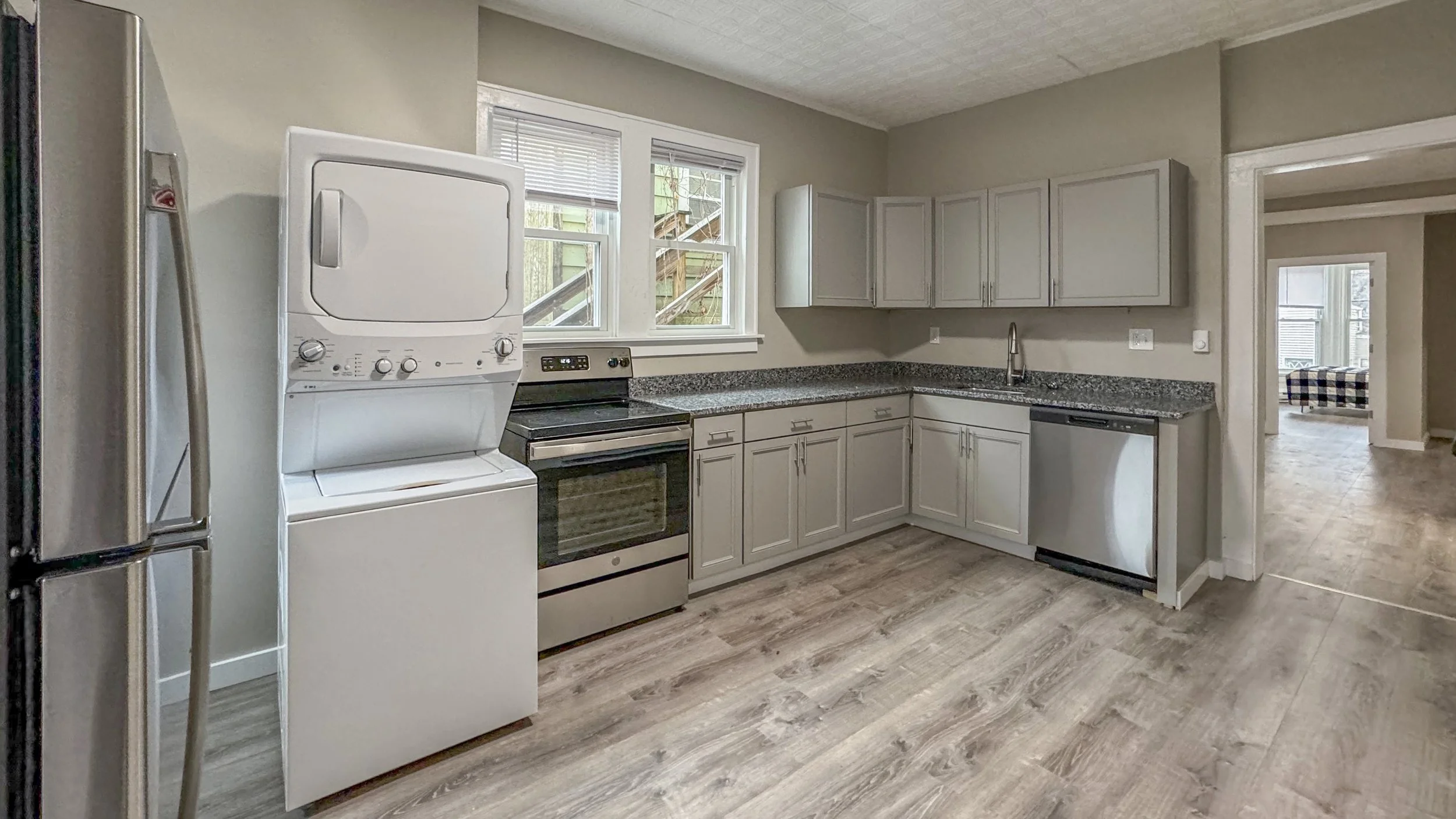Dorm vs. Off-Campus Living: Pros and Cons for College Students
/Introduction
Choosing between dorm life and off-campus living is a major decision for college students. Housing can affect everything from study habits to social life, and each option has its own unique benefits and challenges. Whether you’re looking to dive into the full campus experience or crave the independence of off-campus living, it’s important to weigh your options carefully. Let’s break down the pros and cons of each to help you make the best decision for your college journey.
Dorm Living Overview
What is Dorm Life Like?
Dormitories, often referred to as "dorms," are on-campus housing options typically provided by colleges and universities. Dorm life is designed to offer students a community-focused living environment that is located close to classes, campus dining halls, libraries, and other essential facilities.
Types of Dorms Available
There are various types of dorms, ranging from traditional shared rooms to suite-style living arrangements with private bedrooms but shared bathrooms and common areas. Some dorms are specifically designated for first-year students, while others may cater to upperclassmen or offer themed housing.
Off-Campus Living Overview
What is Off-Campus Housing?
Off-campus living refers to renting an apartment, house, or shared living space outside the college campus. This option provides students with more control over their living arrangements, often allowing for more privacy and personal space.
Types of Off-Campus Options
Off-campus options vary widely. Students can choose to live alone, share an apartment with roommates, or rent a house with a group. The flexibility in location, type of housing, and living arrangements makes off-campus living an attractive option for many.
Pros of Living in a Dorm
Social Environment and Networking
One of the most appealing aspects of dorm life is the built-in social environment. Living among other students makes it easy to meet new people, make friends, and form study groups. Dorms often host events and activities that encourage student interaction, helping freshmen adjust to campus life.
Convenience and Proximity to Classes
Dorms are typically located within walking distance of classrooms, libraries, and other campus facilities. This means no worrying about commuting, parking, or getting to class on time. It also makes it easier to engage in campus activities, clubs, and organizations.
Meal Plans and Dining Options
Many dorms come with access to campus dining halls, making it easy to grab meals without the hassle of grocery shopping or cooking. Meal plans often provide balanced meals, and students don’t have to worry about kitchen supplies or time management when it comes to meal preparation.
Cons of Living in a Dorm
Lack of Privacy
Dorm living often means sharing a room with at least one other person, which can be challenging for students who value their personal space. There’s limited privacy when living so close to others, which may feel overwhelming for some.
Shared Spaces and Facilities
While many dorms offer communal living areas, the downside is that shared bathrooms, kitchens, and study lounges can sometimes become crowded. Waiting for a shower or dealing with the habits of other students can be a bit of a headache.
Cost Considerations
Dorms can be expensive, especially when factoring in the costs of meal plans and student activity fees. In some cases, off-campus living might be more affordable, depending on the local housing market.
Pros of Off-Campus Living
Independence and Freedom
Living off-campus gives students a taste of real-world independence. You’re in control of your schedule, meals, and household responsibilities. This experience is particularly valuable for students preparing for life after college.
More Space and Privacy
Off-campus apartments often offer more living space and privacy than dorm rooms. Having your own bedroom or living in a smaller household means you won’t have to share your space as much, which can lead to a more comfortable living situation.
Potential for Lower Costs
Depending on the location and housing market, living off-campus can sometimes be more affordable than paying for a dorm and a meal plan. With roommates, the cost of rent and utilities can be split, lowering overall expenses.
Cons of Off-Campus Living
Commuting to Campus
Living off-campus means you’ll likely have to commute to class, which could involve public transportation, biking, or driving. Commuting can add time to your day and extra costs, like gas or transit fares.
Additional Responsibilities (Rent, Bills, Maintenance)
Unlike dorm living, where many services are included in the cost, off-campus living requires students to manage rent, utilities, and sometimes maintenance issues. This can be overwhelming for students not used to handling these responsibilities.
Isolation from Campus Community
Living off-campus might make it harder to stay connected to campus life. You may miss out on impromptu social events, or it may require extra effort to engage with clubs, organizations, and campus activities.
Factors to Consider When Choosing
Budget and Financial Aid
Cost is a significant factor when choosing between dorm and off-campus living. Be sure to consider your financial aid package and whether it covers off-campus housing expenses. Some universities offer financial aid for both options, while others may only provide support for on-campus living.
Personal Preferences and Lifestyle
Your lifestyle and preferences play a major role in this decision. If you thrive in a social environment, dorm life may be ideal. But if you prefer a quieter, more private setting, off-campus living could be a better fit.
Campus Resources and Support
Dorm residents often have easier access to campus resources like counseling services, academic advising, and student centers. Off-campus students may need to plan ahead to make use of these services.
How Living Environment Impacts Academic Performance
Study Habits in Dorms
Dorm life can be distracting, with the constant presence of other students and potential noise. However, many dorms have designated study lounges that provide a quieter space for academics.
Study Habits in Off-Campus Settings
Off-campus living may offer a quieter, more controlled environment, which can improve focus and productivity. Having a private space to study without interruptions is a major advantage for off-campus students.
Safety Considerations
Dorm Security
Dorms often have strict security measures, such as keycard access, resident assistants, and on-campus security personnel. This can provide peace of mind for students and parents alike.
Off-Campus Safety Precautions
Off-campus safety depends largely on the neighborhood and housing setup. It’s important to research the area, install security measures, and practice common-sense safety precautions when living off-campus.
Social Life and Extracurriculars
Dorm Events and Campus Involvement
Living in a dorm gives you immediate access to campus events, clubs, and activities. Dorms often organize social events to foster a sense of community among residents.
Off-Campus Social Opportunities
While it may require more effort to stay engaged with campus life, off-campus students can still participate in extracurriculars. Living in an off-campus house or apartment with roommates also offers a unique social dynamic.
Long-Term Benefits of Each Option
Building Connections in Dorms
Dorms provide an excellent opportunity to build lasting friendships and network with other students. The communal aspect of dorm life often helps students form bonds that last beyond college.
Preparing for Post-Graduation Life with Off-Campus Living
Living off-campus teaches valuable life skills like budgeting, cooking, and managing household tasks. These skills will be essential once you graduate and begin living independently.
Conclusion
Ultimately, the choice between dorm life and off-campus living depends on your personal preferences, budget, and goals for your college experience. Both options offer unique advantages and challenges, so take time to consider which fits your lifestyle best. Whether you choose the social environment of a dorm or the independence of off-campus housing, make the most of your college years by embracing the opportunities that come your way.
FAQs
What are the biggest benefits of living in a dorm?
The biggest benefits include convenience, proximity to classes, a built-in social environment, and easy access to campus resources.
Can I save money by living off-campus?
Yes, in some cases, off-campus living can be cheaper than dorms, especially when splitting rent and utilities with roommates.
Is it harder to make friends if I live off-campus?
While it may take more effort, it’s definitely possible to make friends off-campus by participating in campus events, clubs, and activities.
Do dorms offer better security than off-campus apartments?
Dorms often have stricter security measures, but off-campus housing can be safe with proper precautions like secure locks and choosing a safe neighborhood.
How do I decide which option is better for me?
Consider factors like your budget, social preferences, need for privacy, and proximity to campus when making your decision.


